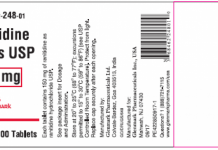Morbidly obese people who undergo minimally invasive gastric bypass surgery to lose weight may also experience a reduction in their symptoms of gastroesophageal reflux disease (GERD), according to a study in the July issue of the journal Surgical Endoscopy. The study found that more than 90 percent of patients achieved significant improvement or resolution of their GERD symptoms after the bypass surgery.
GERD occurs when stomach acid spills into the esophagus because of a faulty valve at the bottom of the esophagus. The result is chronic heartburn.
"GERD and morbid obesity often coexist, not only because they are both very common but also because obesity is a major risk factor for GERD; 50 to 70 percent of patients seeking gastric bypass surgery have GERD. Many of the lifestyle changes aimed at treating GERD are intended to encourage weight loss," said Philip Schauer, M.D., senior author of the study and assistant professor of surgery at the University of Pittsburgh School of Medicine, director of bariatric surgery, director of endoscopic surgery, and co-director of the Mark Ravitch/Leon C. Hirsch Center for Minimally Invasive Surgery.
GERD is usually treated with antacid medications or, in more serious cases, with drugs called proton pump inhibitors and histamine 2 blockers. When these fail, surgery to correct the faulty valve remains the only option.
The study enrolled 152 patients who met the criteria for GERD, had daily symptoms and required medical management. Initial mean body weight was 289 pounds and most patients had other co-morbidities of obesity including high blood pressure, sleep apnea, high cholesterol, depression, type two diabetes and others. To assess changes in GERD symptoms after surgery, patients who participated in the study and who had at least six months follow-up were interviewed and asked to complete three surveys related to their reflux disease and their quality of life following bypass surgery.
Continue Reading Below ↓↓↓
One year after Roux-En-Y gastric bypass surgery, a type of surgery that greatly reduces the size of the stomach, mean excess weight loss was 68 percent.
Patients had a significant decrease in GERD symptoms, including heartburn (from 87 percent to 22 percent), wheezing (from 40 percent to 5 percent), and laryngitis (17 percent to 7 percent) among others. Medication use also decreased significantly both for proton pump inhibitors (from 44 percent to 9 percent) and for histamine 2 blockers (from 60 percent to 10 percent). Furthermore, chronic medication use for GERD decreased from 100 percent to three percent after the surgery.
"These results appear to be at least comparable to Nissen fundoplication, a surgical procedure used to treat GERD," said Dr. Schauer. "Gastric bypass, as opposed to fundoplication or other anti-reflux procedures, may be a more appropriate surgical approach since it is effective in treating GERD as well as many other serious co-morbidities."
Source: University of Pittsburgh Medical Center









